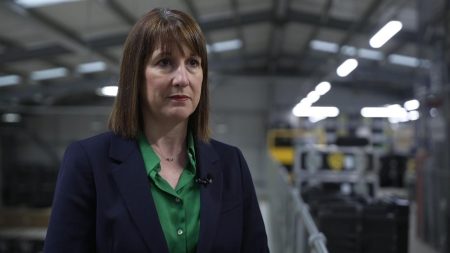Catherine Mann: The Case for Steeper Interest Rate Cuts
Catherine Mann, a prominent member of the Bank of England’s Monetary Policy Committee (MPC), has been making waves with her recent advocacy for a steeper cut in interest rates. Speaking at an event in Leeds, Mann, an American economist, outlined her reasons for backing a half percentage point reduction in interest rates during the MPC’s latest meeting. Her stance is rooted in the belief that the upcoming "hump" in inflation is likely to be temporary and manageable. Mann emphasized that she does not foresee a prolonged period of high inflation, such as the one that followed Russia’s invasion of Ukraine in 2022. This marks a significant shift from her previous position as one of the more hawkish members of the MPC, where she had been cautious about cutting rates due to concerns over rising wages and inflationary pressures.
From Hawk to Activist: Mann’s Shift in Policy Stance
Mann has described herself as an "activist" on the MPC, signaling her willingness to take proactive measures to address the current economic challenges. Her vote for a half percentage point rate cut last week was a bold move, especially considering the broader consensus within the MPC has leaned toward more gradual reductions. Mann’s decision was driven by her desire to "cut through the noise" and provide clarity on the appropriate policy stance, given the weaker-than-expected outlook for employment and economic growth in the latter half of 2024. She acknowledged that her approach differs from the majority view within the MPC, which favors a more cautious approach to rate cuts. However, Mann stressed that while her policy path may diverge from the consensus, the Bank Rate would still need to remain restrictive for an extended period to keep inflation in check.
The Temporary Nature of the Inflation "Hump"
Mann’s confidence in a temporary inflation surge is based on her analysis of the factors driving the expected increase in prices. She pointed to energy and food prices as the primary contributors to the upcoming "hump," with additional pressures coming from other areas such as water bills, phone bills, and insurance. These elements, Mann noted, are largely outside the Bank of England’s control, as they are influenced by global markets and external factors. However, Mann is careful to distinguish between these short-term price shocks and the kind of sustained inflationary pressures that could require more aggressive policy action. She warned against allowing temporary price spikes to translate into higher wage growth, as happened during the energy-led cost of living crisis in 2022, when businesses passed on increased costs to consumers through higher wages.
Economic Context: Weak Growth and employment Outlook
The economic backdrop to Mann’s arguments is one of subdued growth and a weakening employment outlook. The latest Bank of England staff projections indicate that the economy is expected to grow by just 0.75% this year, with inflation predicted to rise to 3.7%—up from its current level of 2.5%. These figures suggest that the economy is facing significant headwinds, with weak growth and a deteriorating employment outlook likely to weigh on inflationary pressures in the medium term. Mann and fellow MPC member Swati Dhingra expressed concerns during the latest rate-setting meeting that keeping the Bank Rate too high could exacerbate these challenges, potentially leading to a more prolonged period of economic stagnation. Their arguments highlight the delicate balance the MPC must strike between controlling inflation and supporting economic growth.
Mann’s Policy Strategy: Cutting Through the Noise
Mann’s decision to back a half percentage point rate cut was not taken lightly. She acknowledged that her earlier hesitations about cutting rates were driven by concerns over strong wage growth and investment linked to Budget tax rises, which could have stoked inflation in the longer term. However, given the current economic climate, Mann believes that a more proactive approach is necessary. She framed her decision as a way to "cut through the noise" and provide clarity on the policy path, emphasizing the need for continued restrictiveness in the future to ensure that inflation remains under control. Mann also highlighted the importance of considering the long-term Bank Rate, which she believes will need to be higher to strike the right balance between supporting growth and managing inflation.
The Broader Implications of Mann’s Stance
Catherine Mann’s arguments for steeper interest rate cuts carry significant implications for the UK economy. Her willingness to challenge the consensus view within the MPC reflects her commitment to addressing the current economic challenges head-on. By advocating for a more proactive approach to rate cuts, Mann is signaling that the Bank of England needs to be nimble in responding to changing economic conditions. Her emphasis on the temporary nature of the inflation "hump" suggests that the MPC should focus on the broader economic picture, rather than overreacting to short-term price pressures. At the same time, Mann’s call for continued restrictiveness in the future underscores the importance of maintaining a credible approach to inflation targeting. As the UK economy navigates a period of weak growth and uncertain prospects, Mann’s arguments are likely to play a key role in shaping the MPC’s policy decisions in the months ahead.















